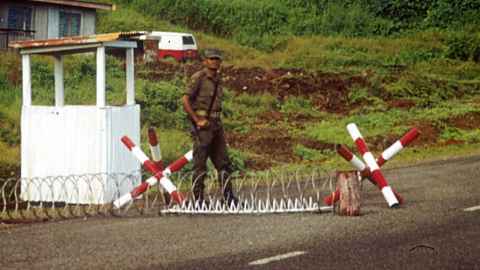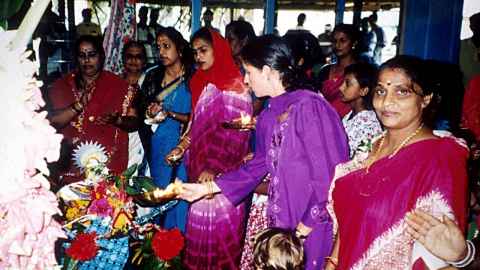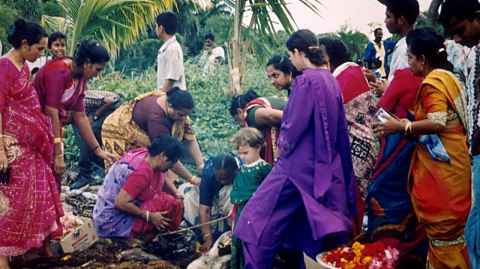Fijian coup 20 years on: how ordinary people coped with chaos
7 May 2020
A vivid personal account of the 2000 Fiji coup from the viewpoint of the Indo-Fijian community is being republished this month to mark the coup’s 20th anniversary.

State of Suffering (Cornell University Press, 2008) by University of Auckland anthropologist Susanna Trnka focuses on how ordinary people cope in extraordinary times, making it particularly relevant as we live through a global pandemic.
On 19 May, a group of hardline Fijian nationalists led by George Speight marched into the parliament buildings in Suva and took elected Prime Minister Mahendra Chaudhry and most of his cabinet hostage for 56 days, throwing the country into chaos.
When a state of emergency was declared, Associate Professor Trnka, along with her husband and three-year-old daughter, found themselves in the middle of a community plunged into fear and confusion.

“The country was in turmoil, schools were closed, a curfew was imposed and military roadblocks were installed,” she says. “I found myself recording and analysing Indo-Fijians’ political concerns over the coup and their experiences of ethnically-motivated political violence, including being physically beaten, having their houses and businesses set on fire, being raped and being the victims of attempted rape.”
She had been in Fiji doing field research for her PhD, living in a predominantly Indo-Fijian community and actively immersing herself in the daily rhythms of the culture, which included learning to speak Fiji Hindi, attending prayer services at Hindu temples and cooking and eating with local families. But on that day in May, her research abruptly changed direction.
The result was State of Suffering, an in-depth, on the ground perspective of how ordinary people come to understand and cope with the turmoil of having their normal lives radically suspended. While focused on the events of the Fiji coup, the book also addresses the broader question of how people respond to dramatic social and political upheaval.
“One of the things I noticed was the widespread use of ‘gallows humour’ which not only allows people to let out tension, but to feel (momentarily) in control,” she says. “Making jokes creates a new emotional space, however fleeting, and joke-tellers become the ‘authors’ of an emotion and response (laughter) in their listeners, giving them a momentary sense of mastery in an otherwise powerless situation.”

She also noticed that in the absence of a coherent narrative to explain what was happening to them, people resorted to creating ‘inventories’ or lists of disjointed events culled from personal experience.
“There were lots of rumours and news headlines circulating which were similarly passed along as an attempt to make sense of the circumstances, to pin down the truth amid the confusion,” she says
These included the collective scapegoating of this or that ethnic group, which might in turn be made more complex by people’s eye witness accounts.
“People often repeated highly prejudicial points of view, but the stories of how they coped with the violence themselves suggested a much more nuanced account that included inter-ethnic cooperation and support,” she says.
“For example, Indo-Fijians might blame “the Fijians” for causing the violence, and yet when they recounted actual events, it was not unusual for them to talk of Fijian friends who helped them escape.”

Dr Trnka finished her PhD at Princeton University in 2002 and in 2003, took up a lectureship in the University’s Faculty of Arts, where she drew on her experiences in Fiji to teach a popular graduate course, ‘Violence and Pain.’
She has since refocused her research on her medical anthropology interests, working on the politics of respiratory health and more recently, youth mental health, as well as looking at how people make sense of life crises, a topic she never thought she would be returning to, until Covid-19.
Making use of her Fijian research, she is currently looking at the social ramifications of Covid-19 in New Zealand in terms of how we experience ‘home’ and ‘family’, as well as how citizens need to be reconsidered as active rather than passive participants in states of emergency.
State of Suffering, Political Violence and Community Survival in Fiji is being republished in May, 2020 by The Institute for Pacific Studies Press.
Media contact
Julianne Evans | Media adviser
Mob: 027 562 5868
Email: julianne.evans@auckland.ac.nz